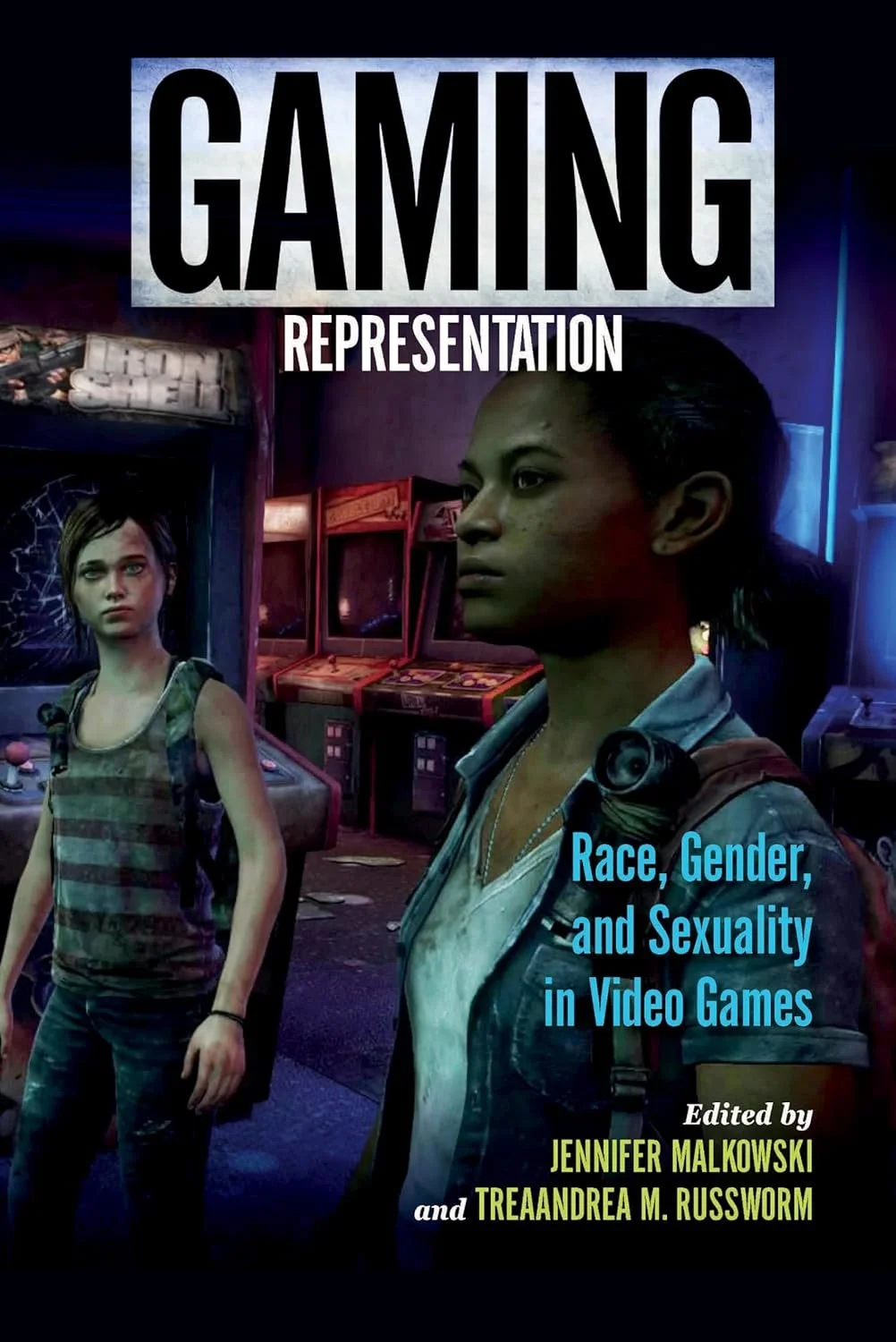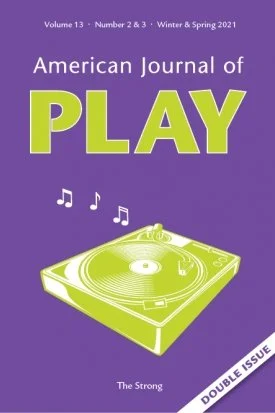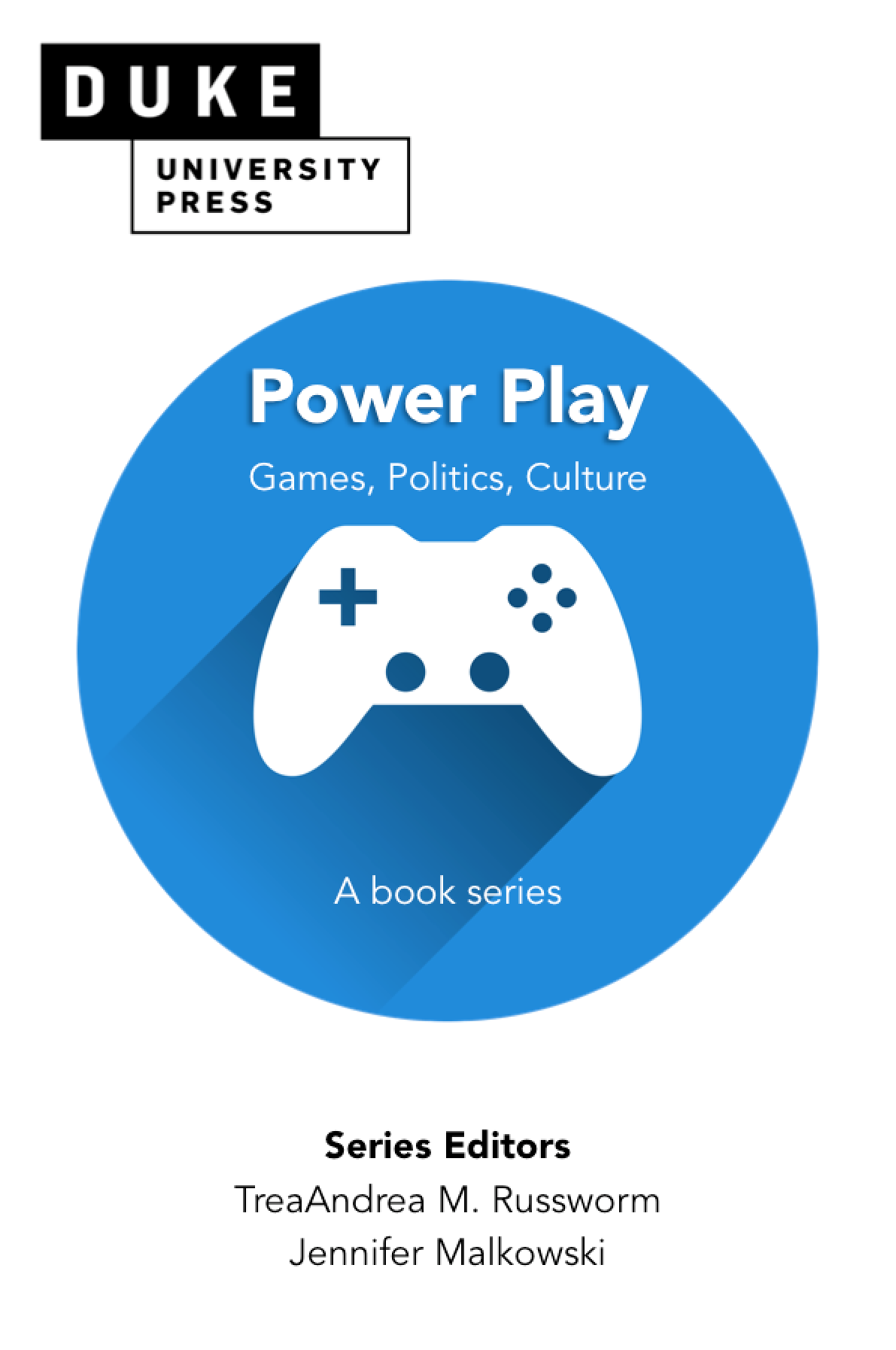Research
-
![Gaming Representation: Race, Gender, and Sexuality in Video Games (Digital Game Studies)]()
Gaming Representation: Race, Gender, and Sexuality
Recent years have seen an increase in public attention to identity and representation in video games, including journalists and bloggers holding the digital game industry accountable for the discrimination routinely endured by female gamers, queer gamers, and gamers of color. Gaming Representation examines portrayals of race, gender, and sexuality in a range of games, from casuals like Diner Dash, to indies like Journey and The Binding of Isaac, to mainstream games from the Grand Theft Auto, BioShock, Spec Ops, The Last of Us, and Max Payne franchises. Arguing that representation and identity function as systems in games that share a stronger connection to code and platforms than it may first appear, the contributors to this volume push gaming scholarship to new levels of inquiry, theorizing, and imagination.
-
![Blackness Is Burning]()
Blackness Is Burning
Blackness Is Burning is one of the first books to examine the ways race and psychological rhetoric collided in the public and popular culture of the civil rights era. In analyzing a range of media forms, including Sidney Poitier’s popular films, black mother and daughter family melodramas, Bill Cosby’s comedy routine and cartoon Fat Albert, pulpy black pimp narratives, and several aspects of post–civil rights black/American culture, TreaAndrea M. Russworm identifies and problematizes the many ways in which psychoanalytic culture has functioned as a governing racial ideology that is built around a flawed understanding of trying to “recognize” the racial other as human.
-
![From Madea to Media Mogul: Theorizing Tyler Perry]()
From Madea to Media Mogul: Theorizing Tyler Perry
Is the commercially successful African American actor, director, screenwriter, playwright, and producer "malt liquor for the masses," an "embarrassment to the race!," or is he a genius who has directed the most culturally significant American melodramas since Douglas Sirk? Are his films and television shows even melodramas, or are they conservative Christian diatribes, cheeky camp, or social satires? Do Perry's flattened narratives and character tropes irresponsibly collapse important social discourses into one-dimensional tales that affirm the notion of a "post-racial" society?
-
![American Journal of Play’s special publication on Blackness and play]()
American Journal of Play: Blackness and Play
This double issue, guest edited by TreaAndrea M. Russworm, challenges the field of play studies by offering new and important perspectives on play as a site for disruption, resistance, and joy in Black communities. Guest editor TreaAndrea Russworm and Spawn on Me podcast cofounder Cicero Holmes discuss the relationships between video games, adult play, and Black culture. In an article that draws on critical race theory, Black critical theory, Black male studies, and white racial frame research, Harrison P. Pinckney, Nathaniel Bryan, and Corliss Outley propose Black Playcrit as a tool to help us better understand Blackness and anti-Black violence in play. Shakeel Harris analyzes the play practices of formerly enslaved children in nineteenth-century America.
-
![Power Play: Games, Politics, Culture]()
Power Play: Games, Politics, Culture
Long disregarded as inconsequential entertainment, video games are now increasingly recognized as a complex medium of profit, passion, and artistry with a tremendous impact on players and on culture at large. Power Play approaches video games as formidable cultural forces, prioritizing the way power circulates within and beyond game texts, industry, and culture. The series attends to the formal, computational realities of video games as entangled with questions of race, gender, sexuality, disability, and coloniality. Books in the series address how video games shape and are shaped by culture, ideology, and the people who play them while imagining the ways they could be shaped differently. Above all, Power Play expands existing disciplinary conversations in video game studies about how video games matter and to whom.




